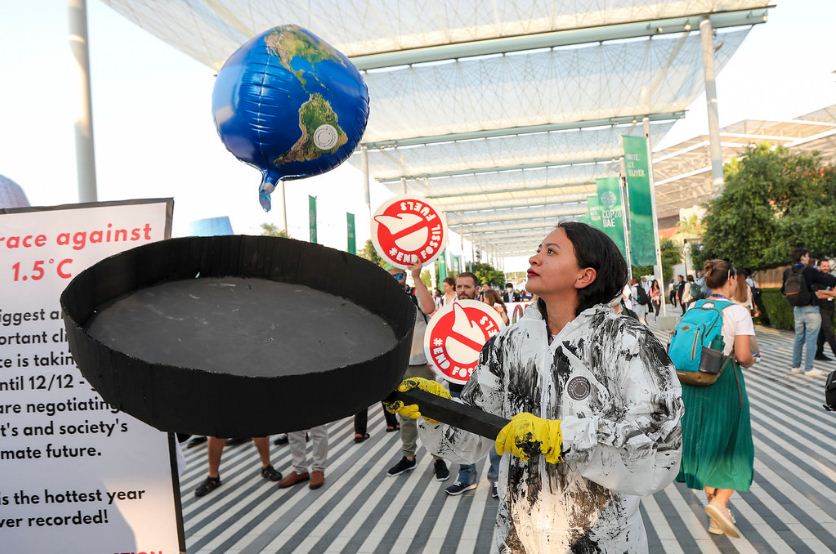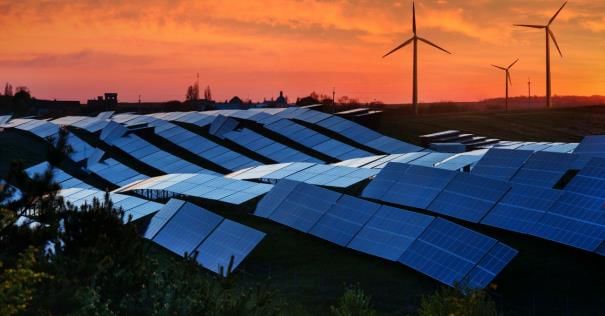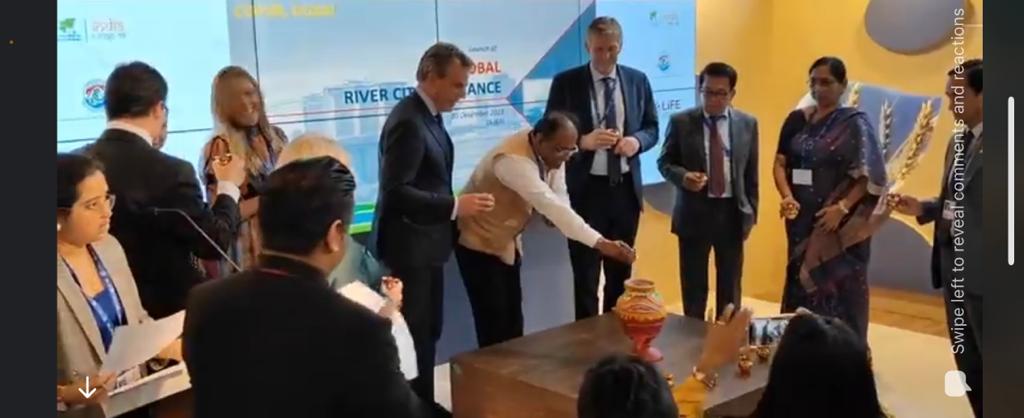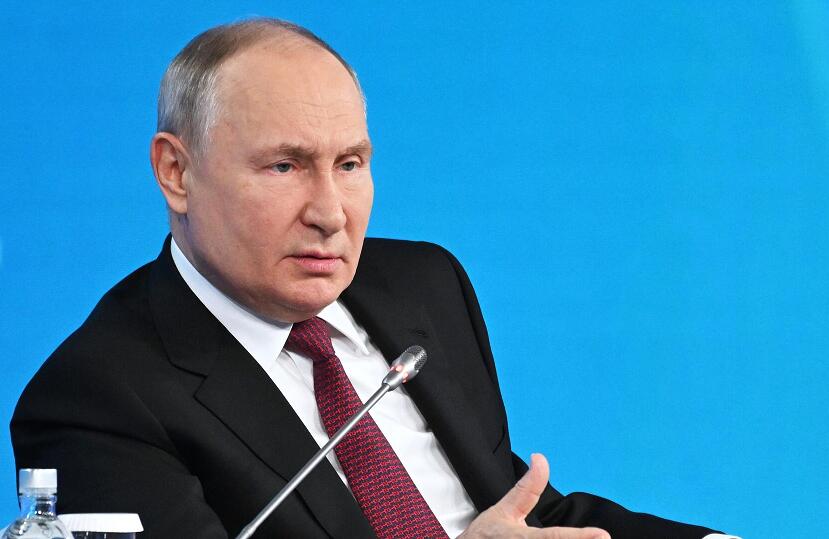The study highlights the amount of damage caused to their GDP by climate change, compared to a scenario where climate change didn’t take place…reports Asian Lite News
Nations represented at the United Nations Climate Change Conference (COP28) that is taking place in Dubai must prioritise ending the age of fossil fuels, says a new report that lays out with stark details the economic impact of rising temperatures on one of the hottest regions of the world.
The analysis presented in the report, titled Mercury Rising: The Economic Impact of Climate Change on the Arabian Peninsula, was steered by Marina Andrijevic, an economist at the International Institute for Applied Systems Analysis in Vienna.
Estimates based on a peer-reviewed methodology show that if the global temperature rise reaches 3 degrees C by the end of this century, Gulf countries could expect to suffer an average GDP hit of 69 per cent by 2100. COP28 hosts UAE and Saudi Arabia both face the likelihood of a 72 per cent GDP growth reduction.
If countries keep global temperature rise to 1.5 degrees as set out in the Paris Agreement, these countries face an average GDP growth reduction of minus 8.2 per cent by 2050 and minus 36 per cent by 2100.
This highlights the threat posed to the region from the expansion of fossil fuels which make up 75 per cent of greenhouse gases.
The findings have sparked calls from climate scientists and campaigners in the region for a fossil fuel phase out date to be agreed at COP28 this week.
By 2050 and 2100 the economies of these countries are still expected to be higher than they are today.
The study highlights the amount of damage caused to their GDP by climate change, compared to a scenario where climate change didn’t take place.
The report also shows that countries in the region have some of the highest per capita emissions on the planet, even before factoring in the large amounts of fossil fuels created in these countries.
The average resident of the COP28 host nation UAE is responsible for 25.8 tons of CO2 per year. That is 645 times more than the average person in Congo, whose per capita CO2 emission is 0.04 tons.
Shady Khalil, Campaigns Lead at Greenpeace Middle East and North Africa, said: “As one of the region’s most acutely threatened by climate change, the Middle East and North Africa face a future where rising temperatures could render vast areas uninhabitable, exacerbating the vulnerabilities of countless communities and leading to displacement, wars, and premature deaths.”
“At COP28, we must commit to a just and equitable phase out of fossil fuels. This commitment isn’t just for the sake of our region; it’s a clarion call to the world to acknowledge and act upon the urgent need to transition to renewable energy sources. Our actions today will determine the liveability in this region and around the world for generations to come, he added.”
Lead researcher on the report, Marina Andrijevic said: “The analysis shows the grave economic harm that will be posed to life in the Arabian Peninsula if temperatures continue to climb in an already baking hot region.”
“It’s a tragic irony that much of this global heating will be caused by oil and gas burned from this very part of the world. Agreeing to phase out all fossil fuels is the single most significant thing that COP28 could achieve in reducing emissions and turning the tide on climate change. It’s not just the Arab world which faces big economic headwinds if emissions grow, other vulnerable countries will also be affected with some of the poorest people bearing the greatest cost.”
Joab Okanda, Senior Climate Advisor, Christian Aid, believes this year is set to be the hottest on record and fossil fuels are directly to blame.
“They make up 75 per cent of greenhouse gas emissions which are fuelling the climate crisis. For people living in places already facing extreme heat, like the Arabian Peninsula, continued growth of the fossil fuel industry is a threat to life. Vulnerable people around the world have been calling for a phase out of fossil fuels for many years and until now the issue has been brushed under the carpet at COP summits.
“That needs to end here in the UAE. What better place to usher in the dawn of a new age than in one of the biggest oil producing countries on earth.”
ALSO READ-Climate Action Rooted in Equity, Justice: India at COP28














